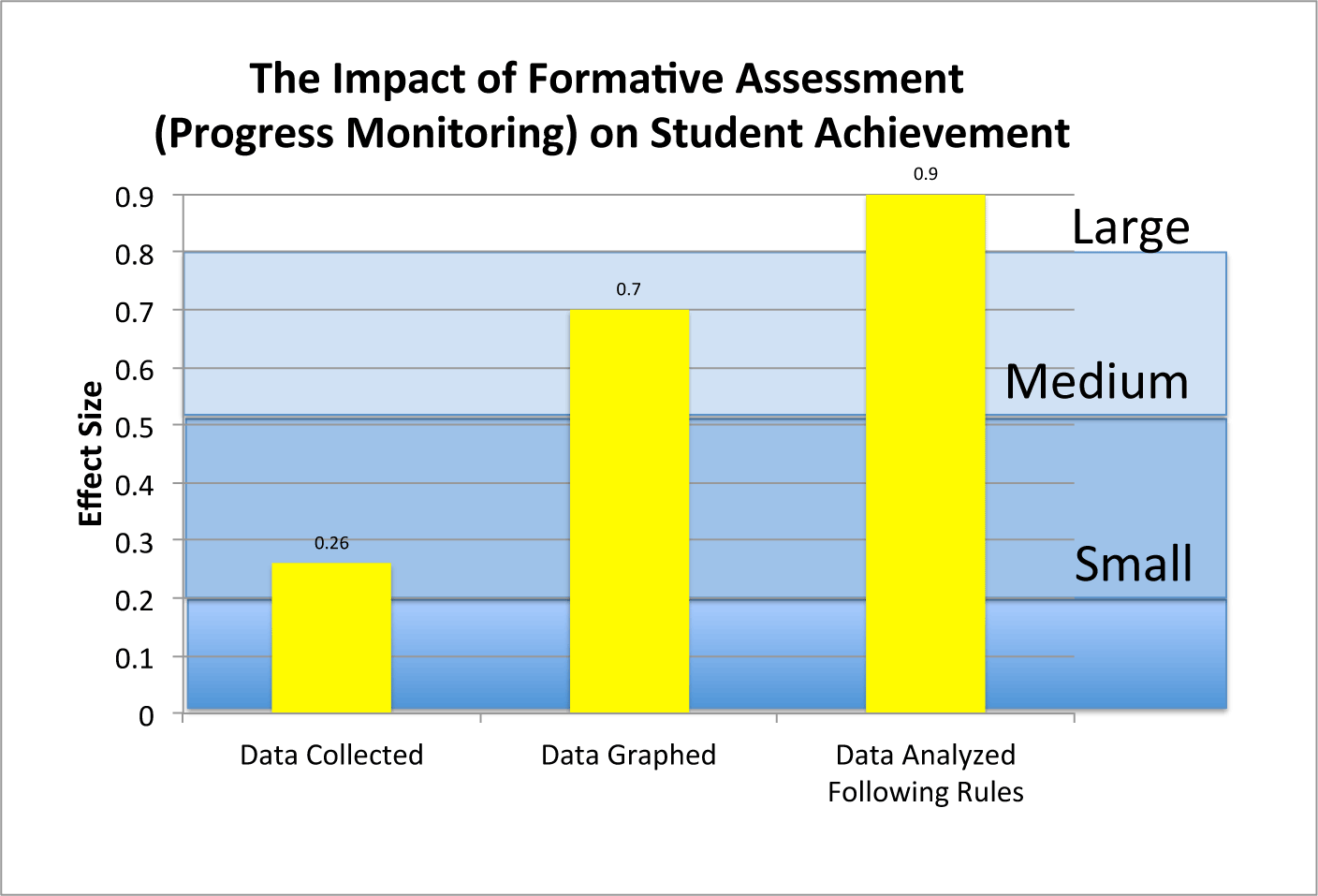What Is the Effect of Formative Evaluation on Student Achievement?
Why is this question important? Formative evaluation (progress monitoring) is a key component incorporated in many current reform efforts designed to improve student achievement. Systemic interventions such as Response to Intervention (RtI), Data-Based Decision Making, and Curriculum-Based Measurement (CBM) depend heavily on the use of frequent progress monitoring. The costs in time and money, as well as the opportunity cost, associated with implementing these interventions are enormous. The interventions have the potential to make a significant difference in improving student performance or become another failed reform effect in a long line of failed education initiatives. It is essential that the core component, formative evaluation, be subjected to rigorous research to establish its effectiveness. A meta-analysis of the research on formative evaluation, such as the Fuchs and Fuchs study, helps to establish a reliable knowledge base to ensure systemic interventions are built on effective core practices.
See further discussion below.

Source(s): Effects of Systematic Formative Evaluation: A Meta-Analysis, 1986
Result(s): The study provides evidence of the importance formative assessment can play in improving student performance. The impact of monitoring student progress using systematic collection of performance data was significantly enhanced when the data was collected on a weekly schedule and teachers interacted with this information by charting the data and analyzing the information using set rules.
The study established an effect size of 0.90 associated with the impact of formative evaluation on student achievement. On average this impact is 0.90 standard deviation points higher for monitored students above students whose programs are not systematically monitored and formatively developed.
- It is notable that simply collecting student performance data had a statistically significant impact on student achievement. Collecting the data without any other intervention resulted in a 0.26 effect size. These results indicate that the regular act of monitoring performance triggers a change in how teachers are teaching and this change has a significant impact on student achievement.
- When the teachers were required to interacted with the data through graphing, the impact on student achievement was enhanced dramatically. Graphing increased the effect size to 0.70.
- Finally, analyzing the data according to rules boosted the effect size to 0.90. Rules for evaluating the data required the practitioners to analyze student performance at regular intervals and to introduce changes to the instructional program as the data indicated.
Implication(s): The take-home message is that progress monitoring coupled with graphing and following rules for analyzing and responding to the data can be a powerful educational intervention.
Author(s): Lynn S. Fuchs and Douglas Fuchs
Publisher(s): Exceptional Children, the property of Council for Exceptional Children
Study Description: The study consisted of a meta-analysis of the effects of formative evaluation on the achievement of students with special needs. The meta-analysis reviewed 21 randomized controlled studies in which 96 separate effect sizes were obtained.
Definition(s): Formative evaluation: Frequent and ongoing feedback on the effects of interventions on student performance obtained through the collection of data on student performance throughout the school year. The data is used to verify student progress and act as an indicator to adjust interventions when insufficient progress indicates a changed is needed.
Effect size: A standardized measure of the effect of an intervention on an outcome. The effect size represents the change (measured in standard deviations) in an average outcome that can be expected if that person is given the treatment. Because effect sizes are standardized, they can be compared across studies.
Opportunity cost: The benefit forgone when selecting one option over another.
Citation: Fuchs, L. S. & Fuchs, D. (1986). Effects of Systematic Formative Evaluation: A Meta-Analysis. Exceptional Children, 53(3), 199-208.
